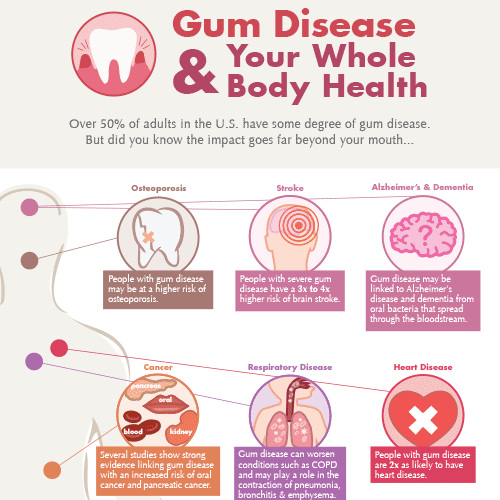P regnant women are already likely to have gum disease due to hormonal changes. Studies have shown that women with severe gum disease left untreated during pregnancy are more susceptible to having early labor. This means that gum disease can lead to having your baby prematurely and make them more at risk for birth defects and even death.
regnant women are already likely to have gum disease due to hormonal changes. Studies have shown that women with severe gum disease left untreated during pregnancy are more susceptible to having early labor. This means that gum disease can lead to having your baby prematurely and make them more at risk for birth defects and even death.
Fetal growth restriction is another suggested side effect of untreated gum disease, meaning your baby may not develop and grow in the womb to its full potential before being born. Those women with severe periodontal disease were 11 times more likely to have babies with fetal growth restriction.
Gum disease has also been linked to preeclampsia, a condition that can harm the health of both mother and baby. It is characterized by high blood pressure during pregnancy and damage to other internal organs, frequently liver and/or kidneys.
Though a mother’s bacteria (such as those from gum disease) don’t usually cross over to the baby in the womb, within hours or days of being born, the baby will start to share the microbiome of its mother, and this can continue for up to four months after birth. This means the baby may be getting bacteria from direct transfer of bodily fluids if you have untreated gum disease.
As the child grows older, they may also “inherit” bad oral health habits that persist into adulthood if the mother is disinterested in oral health.
Gum disease may have an impact on even getting pregnant in the first place. More research needs to be done, but studies show that women with fertility issues like endometriosis and polycystic ovarian syndrome are much more likely to have gum disease.
Before conception, men’s fertility is impacted by gum disease as well. Untreated gum disease can lower sperm count dramatically and cause them to be sluggish swimmers.

